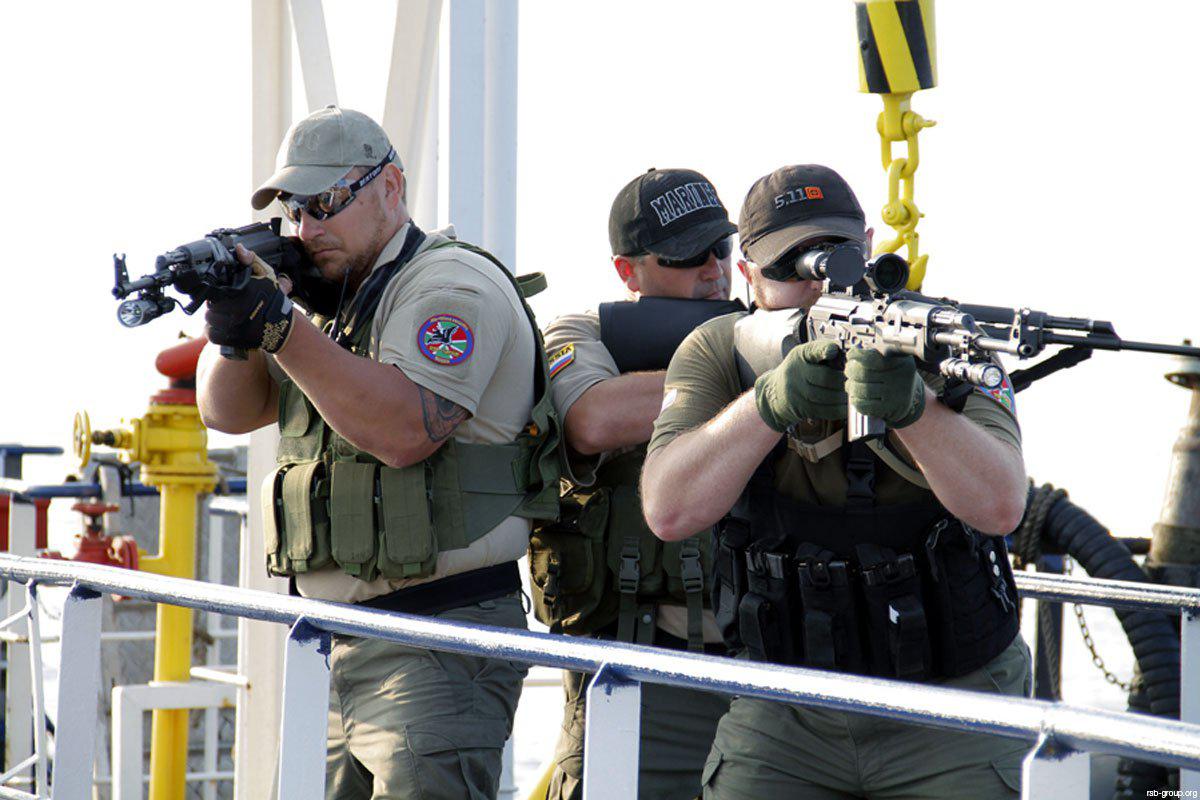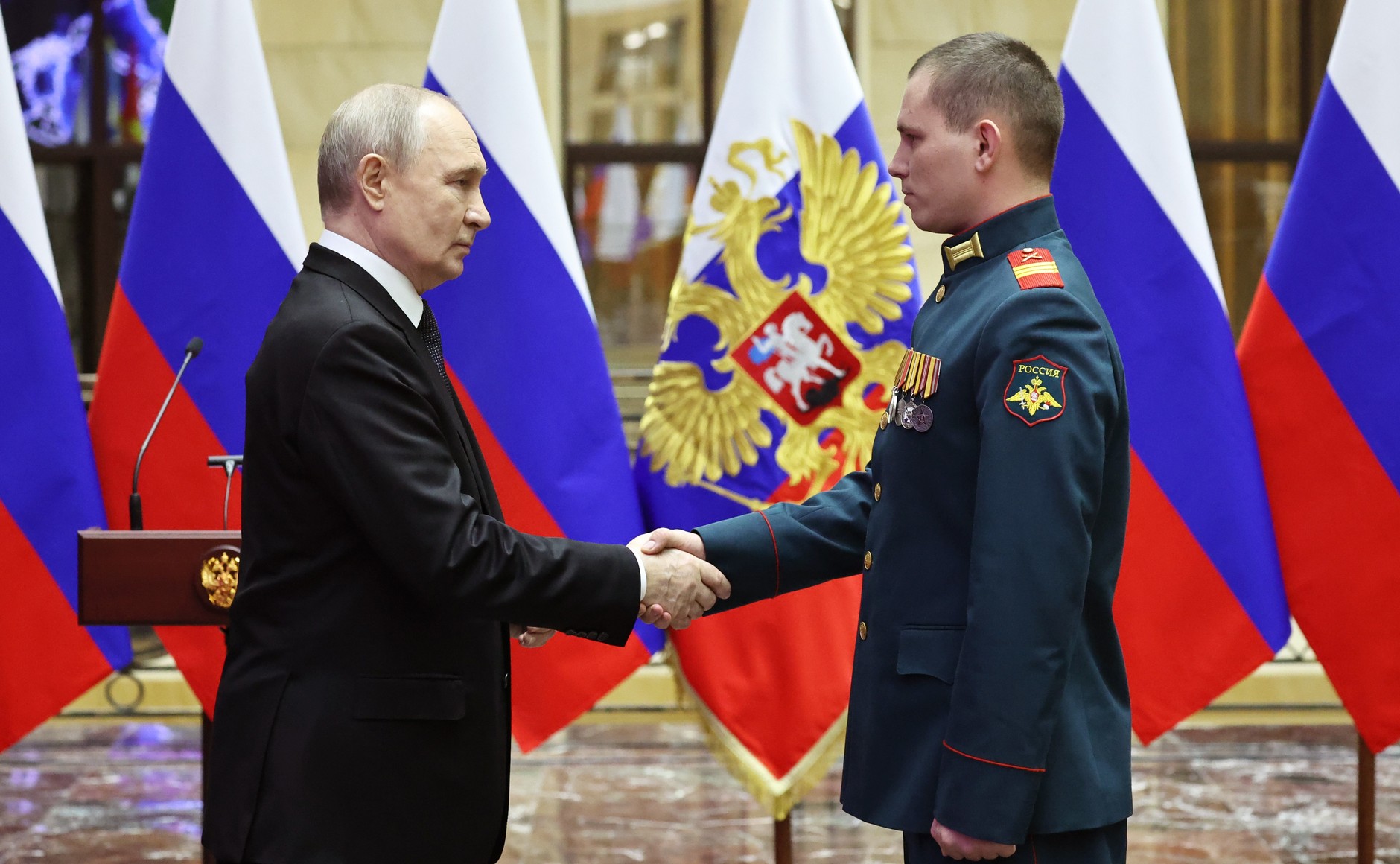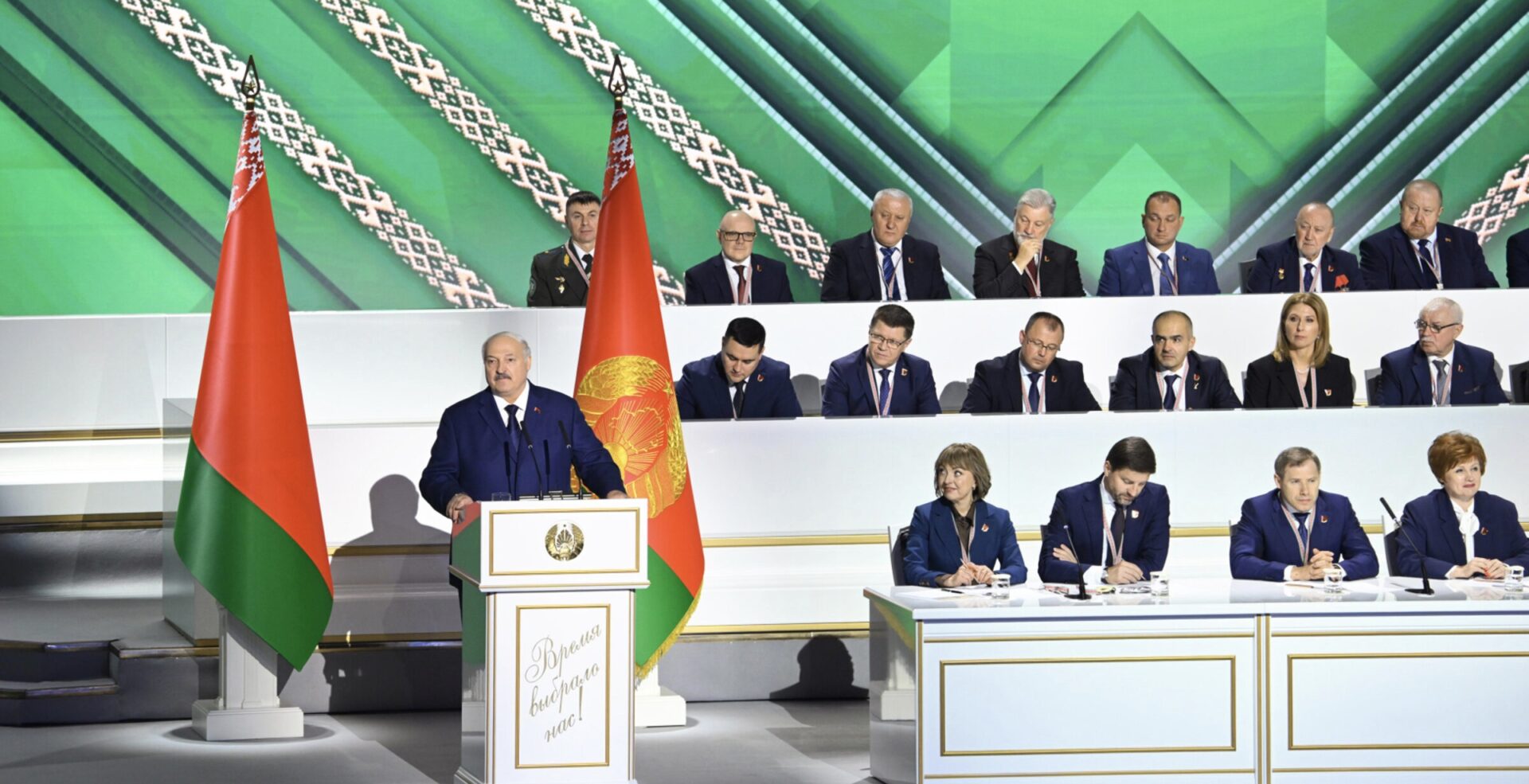
Private Military Companies Forming Vanguard of Russian Foreign Operations
Private Military Companies Forming Vanguard of Russian Foreign Operations
The massive Russian military involvement in Syria in support of President Bashar al-Assad may be the first move to reestablish Moscow’s influence over the entire Middle East (see EDM, March 8). Russia has also been seeking contacts in conflict-ridden Libya, which still lacks an effective national government following the fall of long-time dictator Muammar Qaddafi, in 2011. Vladimir Putin, who in 2011 was temporarily Russian prime minister, publicly criticized the then-president, Dmitry Medvedev, for not using Moscow’s veto power to prevent a United Nations Security Council resolution condemning Qaddafi’s use of airpower to suppress an uprising against his regime. The resolution allowed for the imposition of a no-fly zone over Libya and the subsequent Western military intervention, which eventually ousted Qaddafi. In 2012, Putin returned to the Kremlin as president, while Medvedev was relegated to the prime minister post. Since then, Moscow has continued to accuse Western involvement in Libya of being destabilizing and promoting terrorism, all the while seeking ways to reestablish a foothold in the oil-rich country (Mk.ru, February 9).
Notably, Moscow has been cultivating relations with General Khalifa Haftar—the most powerful warlord in eastern Libya, supported by Egypt. Haftar, an army general, commander of the Libyan National Army (LNA) and a former citizen of the United States, who lived in exile in that country for nearly 20 years, has twice visited Moscow. Last January, he was entertained onboard Russia’s aircraft carrier, the Admiral Kuznetsov, off the shore of Libya. The Kuznetsov was on course back to its Barents Sea base for repairs, after a combat tour bombing targets in Syria (see EDM, February 1). While on board, Haftar had video conference talks with Russian Defense Minister Sergei Shoigu about jointly “fighting international terrorist groups in the Middle East” (Militarynews.ru, January 11). Later, Moscow denied reports it had agreed to supply Haftar’s LNA forces with $2 billion worth of arms and military supplies, though some weapons deals could be underway. Russia has been in contact not only with Haftar, but also with the UN-recognized national unity government in Tripoli and has called for the formation of a joint front against the Islamic State and other jihadist militants in Libya. Still, for Russia, the best outcome would be a stable oil-rich Libya, ruled by a secular authoritarian strongman who would make lucrative arms and technical cooperation deals, promote Russian interests and provide military bases: Haftar, not the Tripoli government, is Moscow’s obvious choice (Mk.ru, February 9).
This week (March 13), it was reported that some 22 Russian special forces “with drones” were spotted on the border with Libya, at the Egyptian Sidi Barrani airbase, close to Haftar’s main stronghold—the port city Tobruk. The possible deployment of Russian special forces on the Libyan border could be interpreted as the first phase of a possible Russian engagement in support of Haftar. In Moscow, the Kremlin and the Ministry of Defense immediately refuted any Russian military presence in Sidi Barrani or anywhere in Haftar-controlled territory (Interfax, March 14). But as the official denials were being registered, Oleg Krinitsyn, the director general of the private Russian military company RSB-Group, told Russian journalists that his employees (all former well-trained servicemen) have been recently clearing mines in Benghazi, in Haftar-controlled territory, under an “official contract” but were “not involved in any combat.” Private military activities are absolutely illegal in Russia, and hiring mercenaries is a felony. The RSB-Group is officially registered as a security firm; but for missions abroad, it has, according to Krinitsyn, also registered a company in the British Virgin Islands. Krinitsyn boasted the RSB-Group could easily raise a “2,000 strong” military force if there is a patron ready to pay (RBC, March 13).
The increasing use of private military companies, known in Russia as Chastnye Voennie Companiy (ChVK), has become the modus operandi of the Russian military/political activities abroad. Armed volunteers were hastily organized and sent to Crimea in March 2014 to provide cover for Russian special and regular forces occupying and annexing the peninsula. Volunteer formations, including ChVK, have been deployed to fight in the Ukrainian breakaway region of Donbas to provide the Kremlin with plausible deniability of any involvement. Under the Russian constitution, any foreign deployment of Russian service members into combat must be publicly approved by the upper house of parliament—the Federation Council (FC). This clause was written into the 1993 constitution to avid the unpopular and costly secret foreign wars the Soviet military was fighting during the Cold War. The chair of the FC Defense Committee, Victor Ozerov, told journalists: “We did not vote to send special forces to Libya or Egypt, so there are none. ChVKs are and will stay illegal in Russia. If they are registered offshore, Russia is not legally responsible for anything” (Interfax, March 14).
The so-called “Wagner” ChVK has been involved in fighting in Donbas and has reportedly been heavily involved in fighting together with pro-al-Assad forces in Syria. Unlike Western private military contractors, which are legally employed and primarily involved in performing auxiliary tasks, providing security, handling logistics and carrying out training, the Russian volunteers—including the Wagner ChVK—are frontline fighting forces, armed with heavy weapons and even armor. They not only provide the Kremlin with plausible political deniability but also apparently take casualties the Russian authorities do not report. The latest official casualty list of the Russian military in Syria is 28 dead since September 2015; the number of killed volunteers may be much higher. In Russia, Wagner volunteers train at special forces bases, and in Syria they are under the command of special forces officers. Reportedly, there are at least some 2,500 Wagner combat personnel in Syria. A Wagner recruit is reportedly paid some 80,000 rubles ($1,400) per month in Russia while training and three times more when in combat in Syria (RBC, March 7).
On December 9, 2016, at a reception in the Kremlin honoring Russia’s heroes, Putin took a photo together with Dmitry Utkin (nicknamed Wagner, which he adopted during his deployment in Donbas). Utkin is, in fact, the commander and founder of the Wagner ChVK. The Kremlin acknowledged Putin did take “photo-ops with many guests,” but did not meet anyone purposely (Tvrain.ru, January 13). Volunteer casualties in Donbas and Syria are kept secret and do not upset Russian public opinion. The Donbas war has created a large pool of potential mercenaries ready to fight Russia’s wars for cheap but without the health and social guarantees of regu


